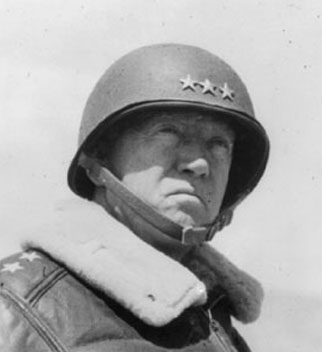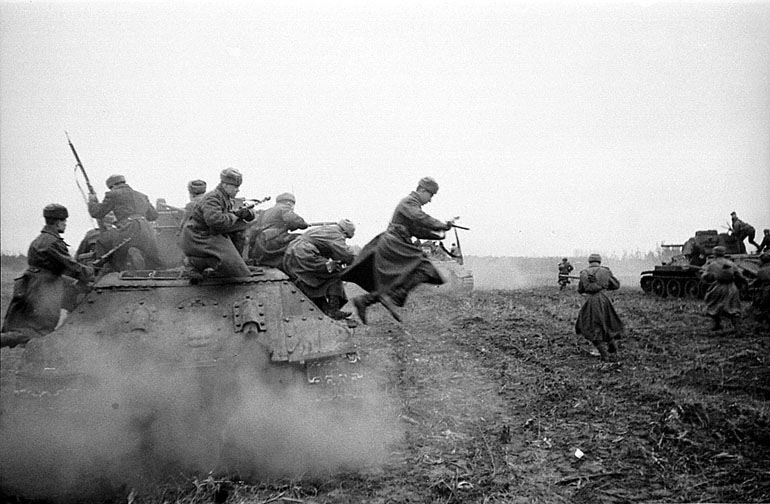The Heir of Huey Long
On February 20th, 1944, as MacArthur made plans in China to finish the Japanese, President Huey Long announced that he would run for an unprecedented third term. The few who dared to raise their voices against this breach in tradition were quickly silenced by the efficient federal police force. The Republican and Democratic parties had dissipated after eight years of a dictator in the White House, and so it seemed that come November Long would gain another four years at the helm of America. It seemed no one could challenge him. He was very wrong.
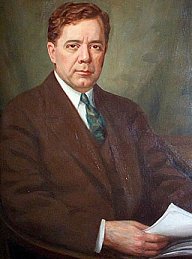
A heroic oil painting of Long made in 1944
William Randolph Hearst, who had served as Long's chief propagandist for many years, had a grand party at Heart's Castle a few days after the announcement. The sprawling, elegant mansion had hosted many great parties over the years, and this was no exception, with Hollywood stars Ernest and Earl and dozens of others in attendance. Hearst also invited many of his fellow propagandists, such as Walt Disney and Dr. Seuss. Also in attendance was J. Edgar Hoover, head of the FBI, who had personally overseen the arrest of numerous political dissenters. House Representatives Gerald C. MacGuire and Bill Doyle, and Wall Street power broker Prescott Bush also attended. The parties purpose was, at least as Hearst put it, to celebrate Long's candidacy, odd considering Long himself was not invited.
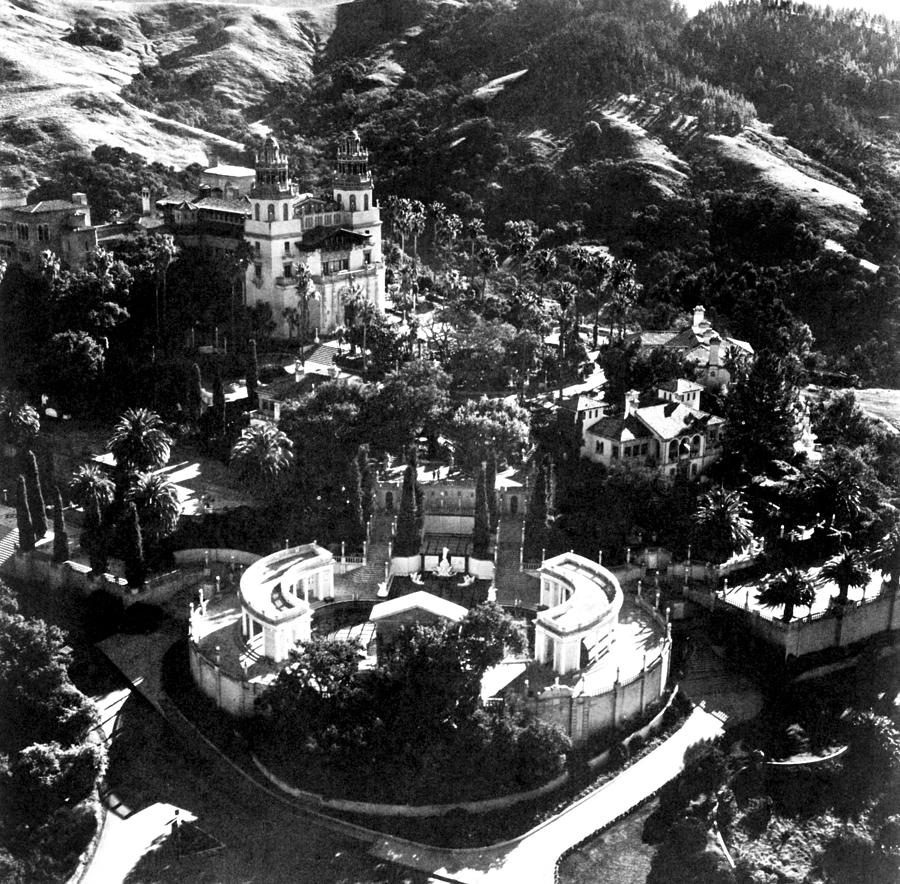
Hearst's massive compound was a popular meeting place for Kingfish
During the party Hearst called Hoover, MacGuire, Doyle, and Bush for a private meeting. Hoover copied a direct transcript of the meeting and kept it in the FBI archives. This gives us a clear view of what the meeting concerned; taking Long out of the White House. None of the conspirators seemed particularly antagonistic towards Long, aside from Bush, who referred to him as a socialist several times. Most of them however, agreed that after his third term Long would have spent enough time in the White House, and after the war with Japan, Germany, and the Soviets finished, it would be time for a regime change. It was clear throughout the meeting that none of the men had any intention of restoring democracy. Hoover even went so far as to say a restoration of democracy would make America collapse.
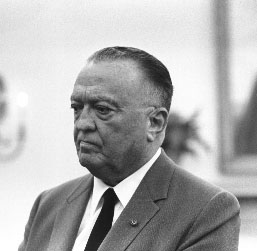
Beyond Hearst himself, Hoover was the most influential person present at the meeting
However, their talk of replacing Long turned into argument when they tried to determine who Long's heir would be. Hearst declared that, as one of Long's longtime supporters, he was the President's "natural heir". He further declared that he could easily pressure Long into retiring before the 1948 elections, and with his newspaper could easily win an election against any opponent. Bush and MacGuire argued against this, saying that MacArthur was the ideal candidate and he was the "best man this country has produced in a long while". Father Charles Coughlin was the ideal candidate for Doyle, but Hoover said "Coughlin is to Catholic to be president" and Doyle withdrew the comment. There was oddly enough no mention of Charles Lindbergh, even though he was vice president at the time. After a good amount of time spent arguing Bush and the House Representatives stormed out of the room. Hoover's transcript ends after that, although it does note Hoover and Hearst discussed "trivial details" for some time.
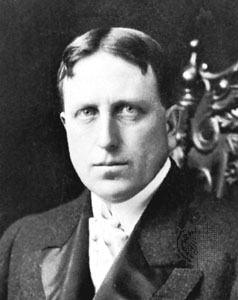
William Randolph Hearst considered himself the ideal candidate for President, despite having only spent four years in the House of Representatives
Ten days later Charles Lindbergh announced he would be retiring from politics, and President Long announced William Randolph Hearst would be his running mate for the next election. The same day Hoover opened a new file in the FBI database. It was simply called "Nazi and Communist sympathizers in America" and supposedly listed all those with positions of power who wanted to overthrow the government of the United States. The first three names put on the file were Gerald C. MacGuire, Bill Doyle, and Prescott Bush. Hoover could have turned the file over to the President and gotten them arrested and interned with ease, but he did not.
There were still names to be added.
On February 20th, 1944, as MacArthur made plans in China to finish the Japanese, President Huey Long announced that he would run for an unprecedented third term. The few who dared to raise their voices against this breach in tradition were quickly silenced by the efficient federal police force. The Republican and Democratic parties had dissipated after eight years of a dictator in the White House, and so it seemed that come November Long would gain another four years at the helm of America. It seemed no one could challenge him. He was very wrong.

A heroic oil painting of Long made in 1944
William Randolph Hearst, who had served as Long's chief propagandist for many years, had a grand party at Heart's Castle a few days after the announcement. The sprawling, elegant mansion had hosted many great parties over the years, and this was no exception, with Hollywood stars Ernest and Earl and dozens of others in attendance. Hearst also invited many of his fellow propagandists, such as Walt Disney and Dr. Seuss. Also in attendance was J. Edgar Hoover, head of the FBI, who had personally overseen the arrest of numerous political dissenters. House Representatives Gerald C. MacGuire and Bill Doyle, and Wall Street power broker Prescott Bush also attended. The parties purpose was, at least as Hearst put it, to celebrate Long's candidacy, odd considering Long himself was not invited.

Hearst's massive compound was a popular meeting place for Kingfish
During the party Hearst called Hoover, MacGuire, Doyle, and Bush for a private meeting. Hoover copied a direct transcript of the meeting and kept it in the FBI archives. This gives us a clear view of what the meeting concerned; taking Long out of the White House. None of the conspirators seemed particularly antagonistic towards Long, aside from Bush, who referred to him as a socialist several times. Most of them however, agreed that after his third term Long would have spent enough time in the White House, and after the war with Japan, Germany, and the Soviets finished, it would be time for a regime change. It was clear throughout the meeting that none of the men had any intention of restoring democracy. Hoover even went so far as to say a restoration of democracy would make America collapse.

Beyond Hearst himself, Hoover was the most influential person present at the meeting
However, their talk of replacing Long turned into argument when they tried to determine who Long's heir would be. Hearst declared that, as one of Long's longtime supporters, he was the President's "natural heir". He further declared that he could easily pressure Long into retiring before the 1948 elections, and with his newspaper could easily win an election against any opponent. Bush and MacGuire argued against this, saying that MacArthur was the ideal candidate and he was the "best man this country has produced in a long while". Father Charles Coughlin was the ideal candidate for Doyle, but Hoover said "Coughlin is to Catholic to be president" and Doyle withdrew the comment. There was oddly enough no mention of Charles Lindbergh, even though he was vice president at the time. After a good amount of time spent arguing Bush and the House Representatives stormed out of the room. Hoover's transcript ends after that, although it does note Hoover and Hearst discussed "trivial details" for some time.

William Randolph Hearst considered himself the ideal candidate for President, despite having only spent four years in the House of Representatives
Ten days later Charles Lindbergh announced he would be retiring from politics, and President Long announced William Randolph Hearst would be his running mate for the next election. The same day Hoover opened a new file in the FBI database. It was simply called "Nazi and Communist sympathizers in America" and supposedly listed all those with positions of power who wanted to overthrow the government of the United States. The first three names put on the file were Gerald C. MacGuire, Bill Doyle, and Prescott Bush. Hoover could have turned the file over to the President and gotten them arrested and interned with ease, but he did not.
There were still names to be added.
- 1




